Our faculty are heavily involved in research and mentoring. Details of basic science and clinical translational science are on our Research page.
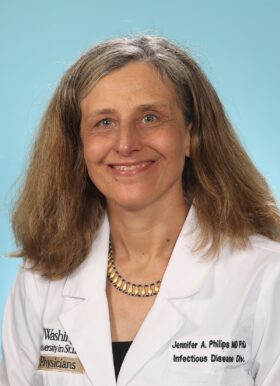
Jennifer A. Philips, MD, PhD
Theodore and Bertha Bryan Professor, Departments of Medicine and Molecular Microbiology; Co-director, Infectious Diseases Division
- Phone: 314-747-8058
- Email: philips.j.a@nospam.wustl.edu
Dr. Philips is principal investigator of an NIH-funded lab that studies how Mycobacterium tuberculosis evades the host immune response.

William G. Powderly, MD
J. William Campbell Professor of Medicine & Co-director, Infectious Diseases Division
- Phone: 314-454-8287
- Fax: 314-454-8294
- Email: wpowderly@nospam.wustl.edu
Dr. Powderly has been actively involved in HIV-related clinical research for over thirty years with specific interests in opportunistic infections, metabolic complications and long-term outcomes of antiretroviral therapy.
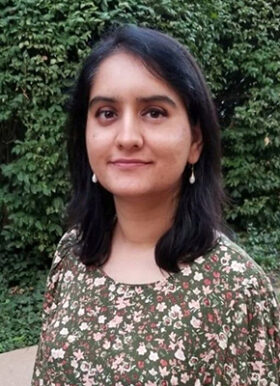
Pallavi Chandra, PhD
Instructor in Medicine
- Phone: 314-747-5228
- Email: chandra.pallavi@wustl.edu
Dr. Chandra specializes in Mycobacterium tuberculosis pathogenesis, with a special focus on immunometabolism. In recent work, she characterized a novel relationship between macrophage fatty acid metabolism and antimycobacterial immunity.
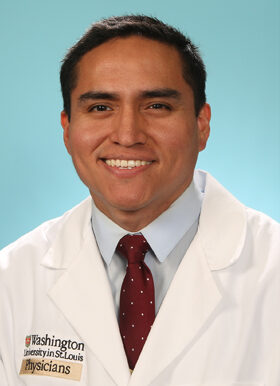
Miguel A Chavez, MD, MSc
Instructor in Medicine
Miguel A. Chavez, MD MSc is currently working with the BJH-Antimicrobial Stewardship program and the division of Hospital Medicine in the department of Internal Medicine as an Instructor.
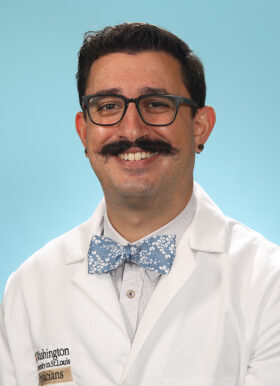
Joseph N. Cherabie, MD, MSc
Assistant Professor of Medicine
- Phone: 314-454-8254
- Email: jcherabie@wustl.edu
Dr. Cherabie specializes in sexual health care with a focus on LGBTQIA+ health, sexually transmitted infections (STI), and HIV, all within the lens of medical education.

Zhenlu Chong, PhD
Instructor in Medicine
- Phone: 314-362-2847
- Email: zchong@wustl.edu
Dr. Chong specializes in innate immunology and infectious diseases, with a special focus on how innate immunity responds to flavivirus infection. He is also very interested in identifying host factors of flaviviruses including West Nile virus, Dengue virus, Zika virus, etc. by using CRISPR screening.
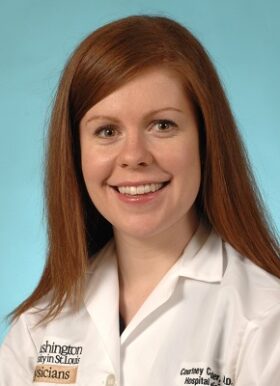
Courtney Chrisler, MD
Assistant Professor of Medicine
- Phone: 314-454-8354
- Fax: 314-454-5392
- Email: cchrisler@wustl.edu
Dr. Chrisler specializes in general infectious diseases with a focus on management of acutely hospitalized patients, clinical education, and patient safety and quality improvement.
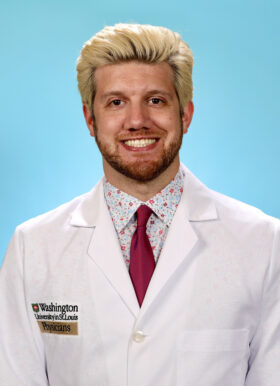
Tyler J. Degener, MD
Assistant Professor of Medicine
- Phone: 314-454-8354
- Email: degener@wustl.edu
Dr. Degener has a special interest in treating those living with HIV and LGBTQ+ population health. Dr. Degener’s research interests include HIV antiretroviral therapy (ART) adherence, engagement into HIV care, and retention in care for those living with HIV (the HIV care continuum).

Pritesh Desai, PhD
Instructor in Medicine
- Phone: 314-362-2847
- Email: desai@wustl.edu
Dr. Desai concentration is immunology and microbiology, and virology.
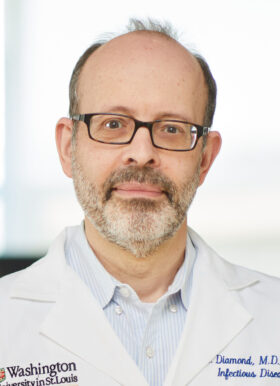
Michael S. Diamond, MD, PhD
The Herbert S. Gasser Professor, Departments of Medicine, Molecular Microbiology, Pathology & Immunology
- Phone: 314-362-2842
- Fax: 314-362-9230
- Email: diamond@wusm.wustl.edu
Michael Diamond, MD, PhD is the leader of a basic and translational research laboratory studying the interface between viral pathogenesis and host immunity. His laboratory focuses on emerging RNA viruses including flaviviruses, alphaviruses, and coronaviruses.

Erik R. Dubberke, MD, MSPH
Professor of Medicine
- Phone: 314-454-8354
- Fax: 314-454-5392
- Email: edubberk@wustl.edu
Dr. Dubberke specializes in clinical and translational infectious diseases, with a focus on transplant infectious diseases, hospital epidemiology, and Clostridioides difficile infection (CDI).

William Dunagan, MD, MS
Professor of Medicine
- Phone: 314-454-8215
- Fax: 314-454-5392
- Email: cdunagan@bjc.org
Dr. Dunagan’s primary research focus is in the assessment and improvement of healthcare quality, with a particular emphasis on patient safety research, medical informatics and infection prevention.
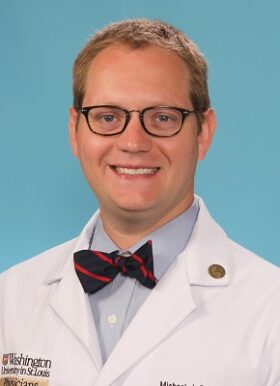
Michael Durkin, MD, MPH
Associate Professor of Medicine
- Phone: 314-454-8354
- Fax: 314-454-5392
- Email: mdurkin@wustl.edu
Dr. Durkin uses administrative data to identify opportunities to improve antibiotic prescribing in outpatient settings, with a focus on outpatient and community settings; harnesses survey and qualitative research methods to identify potential solutions based on input from frontline providers; and designs, pilot tests, and disseminates antibiotic stewardship interventions using dissemination & implementation science and informatics technology.
